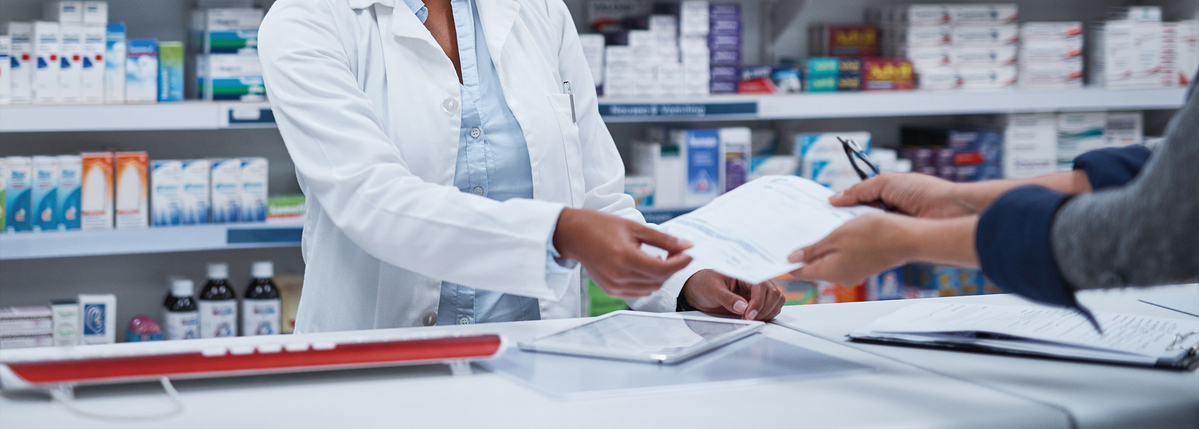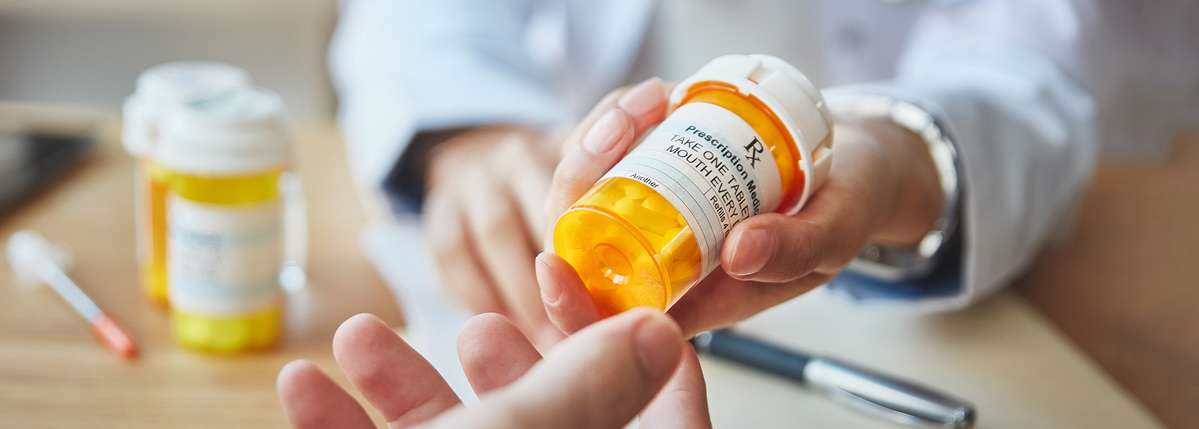Why does my body need insulin?
Written by: Ginger Vieira
7 minute read
December 7, 2021
Without enough insulin the body feels as if it's starving, even though the sugar levels in your blood could be extremely high.
This educational content is brought to you by the ADA x BT1 Collab.
The following transcript has been edited for length and clarity.
Ginger Vieira: Welcome to Collab Conversations with the American Diabetes Association and Beyond Type 1. My name is Ginger Vieira, and with me today is Dr. Ruth Weinstock from the American Diabetes Association. She is president of medicine and science. She works with patients on a daily basis and teaches future endocrinologists, too.
Thank you for joining me, Dr. Weinstock.
Dr. Ruth Weinstock: My pleasure.
I would love to pick your brain about why the body needs insulin.
Now that’s an excellent question. So insulin is a hormone that the body needs to stay healthy and it’s needed in many many ways. In order for the body to use glucose or sugar, for energy, all the cells in your body need sugar in order to function. For many tissues, including muscle tissues, insulin is the key that opens the door and allows glucose to get into the cells and be used for an energy source.
Without it the body feels as if it’s starving, even though the sugar levels in your blood could be extremely high. And so it actually breaks down your muscle. It breaks down your fat trying to get energy for the body, and that causes your blood sugars to be very high. It also, in extreme, can cause the blood to become acidic. It can do damage to that high blood sugar and ketones, if they develop, can do damage to the body. So it can affect every organ and every part of the body.
High levels of glucose over time, when the blood sugar is very high, you become more thirsty. You have to drink more. You go to the bathroom more in terms of urination, you could become dehydrated. And those very high blood sugars can adversely affect multiple parts of the body.
And you actually also tend to have cravings for more sugar, even though there’s so much sugar in your blood, that’s…
You could be hungry. Yep. You can be quite hungry. And of course, in diabetes there is a wide spectrum. Some people are extremely insulin deficient. In fact, some people with type 1 diabetes don’t make any measurable insulin at all, as well as some people with type 2 diabetes of longstanding don’t make much insulin at all, to those who still make some insulin, varying amounts in different people because type two diabetes is very heterogeneous.
The ways that we approach the treatment and what people need to keep their blood sugars normal can vary from person to person, and also can vary over time because in many people, for example, with type 2 diabetes, perhaps when they’re diagnosed, just to give an example, one individual may make half the amount of insulin that a normal person would make. But over time that could become less and less and less and less and less.
Okay. Which is why they refer to it as a gradual, progressive disease.
Right. But that rate of decline varies tremendously in different individuals.
Okay. Some people might need insulin shortly after their type 2 diagnosis or years later, and some people can make some other changes that could cause them to not need to take insulin forever.
Right. There’s some people who don’t need insulin for decades. They live a very healthy life without insulin. Again, it’s very heterogeneous. The genetics of type 2 diabetes vary in different individuals. So really type 2 diabetes is a mixture of lots of types of diabetes, but we don’t have the right names for them yet.
There are newer medications that can help normalize people’s blood sugars without insulin at all. There are other people, particularly early in the disease, who can make lifestyle changes that can normalize their blood glucose levels. So there’s a wide variety of approaches, but there are some people, depending on how much insulin they still make, who do require insulin therapy. But the amount of insulin that you need also varies greatly.
Right. From person to person, your age. I worked at a camp for kids with type 1 when I was in my twenties and they were smaller than me, but needed so much more insulin than me because of teenager hormones. So it’s really important not to compare your insulin needs to someone else’s…
That’s right. type 1 is also heterogeneous, type 2 is even more heterogeneous.
What could cause someone to need more insulin than what would be considered normal for their body?
Some people, again, just don’t make as much insulin as other people, so of course they’ll need more if they’re more deficient. Other people are overweight or obese, particularly if you have extra fat around the organs in your body, around your belly area, that tends to be associated with something we call the insulin resistance.
What insulin resistance means is that for the same blood sugar lowering effect, you need more insulin. So if someone is very insulin sensitive, they may need a teeny amount of insulin to lower their blood sugar a certain amount, and to lower it that same amount, someone else may need five or 10 times as much insulin if they’re more insulin resistant.
What can cause that?
There are a wide variety of things that can cause that. Weight is only one of them. Certain medications like steroids, some people have to take prednisone, for example, for a lung condition or a rheumatological condition. That can cause insulin requirements to increase. So there are many reasons why people’s insulin requirements can increase. You mentioned hormones, certainly that can also play a role. So there are lots of reasons.
Pregnancy is another example.
Yes. Pregnancy is a great example that during pregnancy the requirements do increase because the placenta is making hormones that work against insulin.
And it’s not a bad thing, it’s a normal part of pregnancy, but it needs to be monitored in someone with any type of diabetes.
Absolutely. For women who are fortunate and don’t have diabetes, their pancreas makes more and more insulin throughout the pregnancy normally, naturally. Pregnancy, you can consider a stress test on the pancreas so that people who develop gestational diabetes, that is, they don’t have diabetes when the pregnancy begins, but perhaps in the second trimester they’re diagnosed with gestational diabetes. That means that as the pancreas is pushed to make more and more insulin, it just can’t make more than a certain amount. That’s why they’re at more risk for also developing diabetes in the future. They have less of a reserve.
We’ve already seen the proof that when under stress, their pancreas struggles to keep up with the demand.
Exactly.
What would tell someone with type 2 diabetes that it’s time to consider going on insulin? How would you know when other diabetes medications aren’t cutting it or lifestyle changes aren’t cutting it.
It depends on the individual and it depends on your blood glucose monitoring. What is your pattern of blood glucose readings and what medications are you on now? Are there other medications that can be added? There are a wide variety of pills now. There are also non-insulin injectable medications that can help many people achieve their goal without going on insulin therapy.
But if you discuss with your diabetes care provider and you are on the maximum doses that you could tolerate, or are willing to take other pills and non-insulin medications to control the diabetes and you are not at your goal. The goal actually does vary in different individuals but at their blood sugar goal, both by a test called hemoglobin A1C, which is an average of the past two to three months, but also the actual blood glucose levels, then insulin therapy is the next step.
And starting on insulin?
For type 2 diabetes, that could be starting with once a day insulin. It’s different from type 1. Unless the blood glucose levels are extraordinarily high. Again, there is individual variation. For most people we start with one injection, but there might be certain circumstances where more than one injection a day is indicated. Again, it has to be individualized.
Right. And really the way to know what your body needs starts with checking your blood sugar and getting those A1C levels measured.
Exactly. Another indication is that the blood glucose levels are extremely high with symptoms, or if you have ketones the blood is more acidic, and ketones are measured at a significant level in your blood or urine, that is also an indication for insulin therapy because ketones are evidence that the blood is breaking down that muscle and fat and you really need more insulin to stop that breakdown. You want to build a body up, not break it down.
Right. There’s so much talk of ketones today in ketogenic diets, but it’s important to understand that those are very small levels of ketones versus what you’re describing is high levels that are very dangerous.
Absolutely. It’s the higher levels that we worry about.
And there’s so much stigma and shame and fear around needing to use insulin as a person with type 2 diabetes, but what we really want those people to understand is that the first priority is getting your blood sugars down to protect everything throughout your body that relies on healthy blood sugar levels.
I think there’s a lot of misinformation about insulin. I tell individuals, some people have a memory, perhaps, of a grandmother who when she went on insulin, something terrible happened. She had an amputation or something, or their kidneys failed.
But that’s not because they went on insulin. That may have been because they had had high blood sugars for a very long period of time that did damage, and the insulin maybe wasn’t started early enough.
Insulin itself did not cause those complications. I tell people to think of insulin as the natural hormone, that your body doesn’t make enough so we’re just replacing it and giving it back to you. It’s really the natural therapy, giving back the hormone that the body is not making enough of. If your thyroid wasn’t making enough thyroid hormone, you would take a pill of thyroid hormone. Your body doesn’t make enough insulin. We give you insulin. Now insulin’s a lot more difficult than one pill a day of thyroid hormone in terms of adjustments and how many are injectable and how many times a day after taking it. But it’s that general idea of replacing what’s missing.
Thank you so much for letting me pick your brain about insulin and why it’s so important and when you really know that it’s time to consider adding it to your diabetes management routine. Thank you.
My pleasure.
Related Resources

You may need to switch your type 2 medications at some point in the year....
Read more

Getting the medications, services and supplies you need to manage your type 2 diabetes should...
Read more

Sadly, not all type 2 diabetes medications, devices and services are covered by health insurance...
Read more


